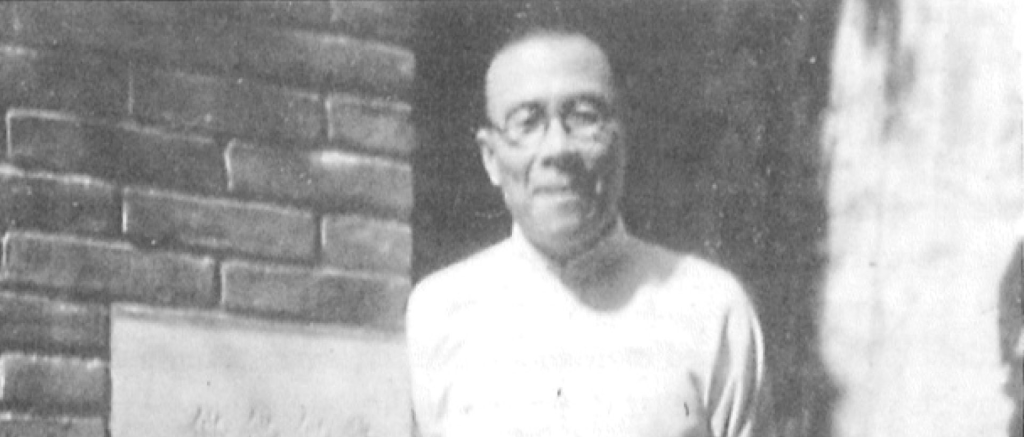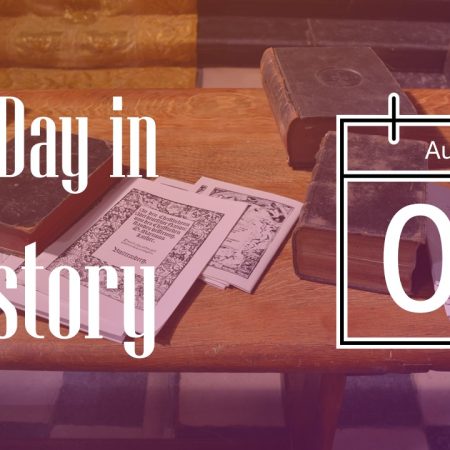
1737
Twenty-year-old Benjamin Beddome hears a visiting preacher speak on the text “I tell you that in the same way there will be more rejoicing in heaven over one sinner who repents than over ninety-nine righteous persons who do not need to repent,” and is deeply moved. Within two years he will be studying for the pastorate. Under his preaching a revival will break forth in Gloucestershire in 1741, during which forty people will be saved. In 1743 he will accept a different pastorate and will write new hymns for the close of each service.

1771
Francis Asbury was converted at 15 in his father’s barn. Reared in a Christian home, he had been raised staunchly Church of England. But, as with so many others, it took the Methodist revivals to capture his soul. From the instant that he was converted he saw the marks of salvation in himself. He was “…happy, free from guilt and fear, had power over sin, and felt great inward joy.” His conversion also led him to read the scriptures, pray and to reach out to others. He began meetings with other young men and taught them the way.

At the time of his conversion, Asbury had settled into work as a saddler. His family was very poor and he had even had to take work at age 11 in order to support himself. Now he was not content merely to exercise his hands, however skillfully, but walked a considerable distance to exercise his soul at an evangelical church where revivalists spoke. He became a Methodist helper and exhorted where he could, even when he was persecuted. At 17 he was licensed by the Methodists as a local preacher. As soon as he turned 21, he gave up his saddler’s work and devoted himself to preaching.
Like John Wesley, Asbury worked out a system to use his time to the best advantage and develop steady habits. In short, he became methodical, and this blessed his work in later years. Teaching himself, he corrected serious deficiencies in his education. At four each morning he rose to read and study for two hours. Ten hours of each sixteen that he was awake he gave to reading and study. For instance, at one point he gave an hour each day to studying the Old Testament in Hebrew, a language he taught himself. In America he carried books in his saddle bags and read as he rode. He made it a rule to read at least 100 pages a day.
One August the young man, then 26 years old, attended a Methodist Conference held in Bristol. For months he had felt the American need. On this day, August 7, 1771, when Wesley said, “Our brethren in America call aloud for help. Who are willing to go over and help them?” Asbury offered himself. Several other candidates also stepped forth, but Wesley sensed that Asbury was the man for the job.
Wesley’s choice was vindicated. No man could have labored harder than Asbury. He came to small, widely scattered congregations. To meet their needs he rode incessantly–5,000 miles a year. He preached 17,000 sermons, ordained 3,000 preachers, founded five schools and distributed thousands of pieces of literature. His organizational skills divided America into circuits and his circuit riders learned the hard life from him. Many, such as Peter Cartwright, became famous in their own right. At Asbury’s death the Methodist Episcopal Church was the largest denomination in the United States. So hard did Asbury work that his health often suffered. But in him Christ once again showed what he could do with a single dedicated life.
1954
Many cultures believe that our names affect our character. That seemed true in Wang Ming-Dao‘s case. He was born in 1900, during the Boxer uprising in China. This uprising was a revolt against foreign influences that were destroying ancient Chinese culture. The Wangs were in deadly danger, because they had associated with Christian missionaries. Terrified, Wang’s father killed himself shortly before his son was born. Mrs. Wang named her new boy “Iron” which, because of his strong personality, soon became Tie-zi, “Iron son.”

Mrs. Wang hated to cook and was quarrelsome, so Wang grew up with many fights and little food. After a wicked childhood, he became a Christian at the age of fourteen. Deep spiritual struggles followed until he understood that Christ demanded complete obedience. Then he gave up his dream to become a politician. He changed his name to Ming-Dao which means “understanding the word.” He even gave up a secure position at a Christian school when he insisted on being baptized again as an adult believer. He and five friends broke ice at a creek in January and plunged themselves in the frigid water in obedience to their consciences.
After years in which God trained him, Wang was asked to preach. His messages stressed holy living. He also wrote a newsletter called Spiritual Food Quarterly. So many people came to hear him that he needed a bigger place to speak. Chinese Christians raised funds. The tabernacle that they built in 1937 was simple, without even a cross. No one was baptized without first showing real fruits of salvation. “Better a few good things than many bad ones,” said the Christians.
Ming-Dao lived up to his own high standards. Even his worst enemies could find no fault in him except in his utter lack of compromise. As an example of this, during the Japanese occupation, he and his fellow workers refused to join a church cooperative. The Japanese threatened Ming-Dao so many times that he ordered himself a coffin, thinking that he would be executed.
After World War II, the Communists gained power. They arrested Christian leaders who refused to go along with them. Many Christian leaders buckled and criticized Ming-Dao, making ugly charges against him. He replied, “The one who faithfully preaches the Word of God cannot but expect to meet opposition in the form of malicious slander and abuse from some leaders in the church and from ‘Christians’ who are spiritually dead.”
In 1954 the Communists brought accusations against him. Ming-Dao sat calmly, eyes fixed on the ceiling, refusing to answer a word. Many in the court wept. The Communists could not get a verdict against him.
He went home, knowing he would be arrested. While he waited, he wrote articles showing that the “Imperialist poison” of missionaries was for the most part the truth of the Bible. “…we are ready to pay any price to preserve the Word of God…Don’t give way, don’t compromise!”
He preached his last sermon at the tabernacle on this day, August 7, 1954, taking as his scripture, “The Son of man is betrayed into the hands of sinners.” Afterward, he handed out copies of his spiritual manifesto. Around midnight, the police came. Tied with ropes, Ming-Dao, his wife and eighteen young Christians were taken to prison.
Ming-Dao was sentenced to fifteen years in prison for what was called “resistance to the government.” Under intense brainwashing, he cracked and signed a confession. He was released; but convinced that he had betrayed Christ, he repeated over and over, “I am Peter. I am Judas.” When his mind returned, he and his wife agreed that he must tell the authorities that his statement had been made under duress and did not represent his true feelings. The pastor was immediately returned to prison for twenty years and his brave wife was sentenced, too.
Mrs. Wang was released in 1973 and Ming-Dao in 1980. By then he was old, toothless and deaf.
